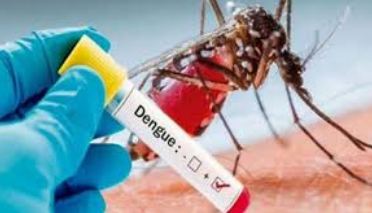ISLAMABAD, Oct 15 (APP/DNA):The Islamabad district administration has intensified its anti-dengue campaign, inspecting more than 40,169 sites across the city to control the spread of the virus, while 37 new cases were confirmed in the last 24 hours — 23 from
rural areas and 14 from urban sectors.
According to the latest dengue surveillance report, the district teams carried out fogging operations at 2,111 locations and identified dengue larvae at 674 sites, while 20 sites tested negative. In response, 1,468 houses were immediately sprayed with anti-dengue chemicals.
The administration has directed all field teams to intensify surveillance and fogging, particularly in high-risk areas.
The report highlighted that anti-dengue inspections are being conducted daily in residential, commercial, and open areas. Teams are checking water containers, construction sites, junkyards, nurseries, and stagnant water spots — all identified as potential breeding grounds for mosquitoes.
Officials said that the anti-dengue drive aims to eliminate larvae at the source and ensure public safety through preventive measures. Field workers are also spreading awareness among residents about keeping their surroundings clean, covering water tanks, and reporting suspected larvae sites.
The administration emphasized that public cooperation is crucial to make Islamabad dengue-free. Residents have been urged to promptly report any larvae detection or stagnant water to local authorities. The teams can be reached through
the helpline or the district administration’s complaint cell.
Strict monitoring has been ordered in all union councils, especially in areas where positive larvae have been found repeatedly. Inspectors are tasked with ensuring that dengue prevention standard operating procedures (SOPs) are followed by households, businesses, and institutions.
Officials warned that those found violating dengue SOPs — such as failing to cover water containers or neglecting cleanliness — will face strict legal action. Notices are being issued to violators, and follow-up inspections will be conducted to verify compliance.
The district health and environment departments are working jointly under the supervision of the deputy commissioner
to maintain real-time tracking of cases and high-risk areas. Data from hospitals, laboratories, and field teams is being compiled daily to guide containment strategies.
According to the administration, dengue hotspots are continuously monitored, and emergency response teams are dispatched where cases or larvae are detected. Fogging and spray operations are being prioritized in sectors
reporting repeated cases.
Public awareness drives are also being carried out through loudspeakers, social media, and door-to-door visits to
educate residents on preventive steps.
The administration reiterated that eliminating dengue requires community participation, as government action alone cannot fully stop the spread.
The district administration reaffirmed its commitment to keep Islamabad safe from dengue, stating that cooperation between citizens and authorities is the only way to ensure sustainable results.
“Making Islamabad dengue-free is a shared responsibility,” the administration stated, urging residents to stay alert, maintain cleanliness, and report larvae sightings immediately.

















